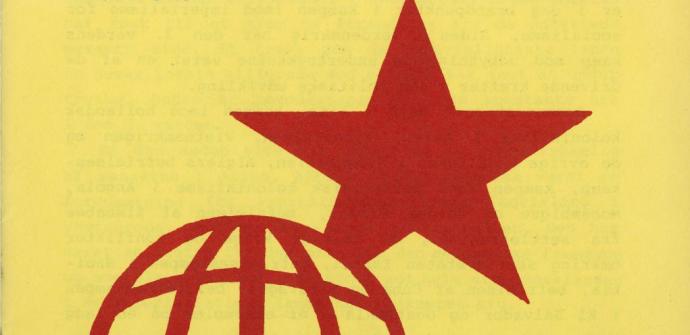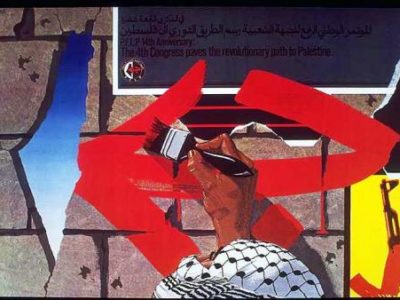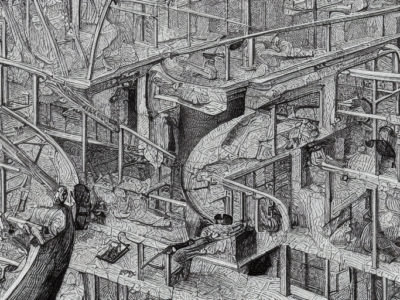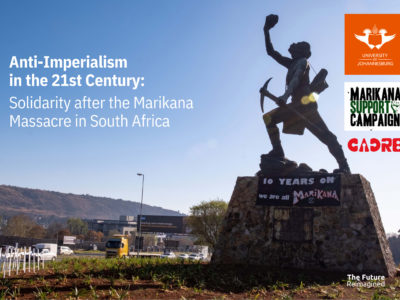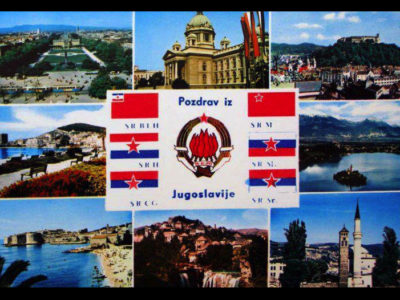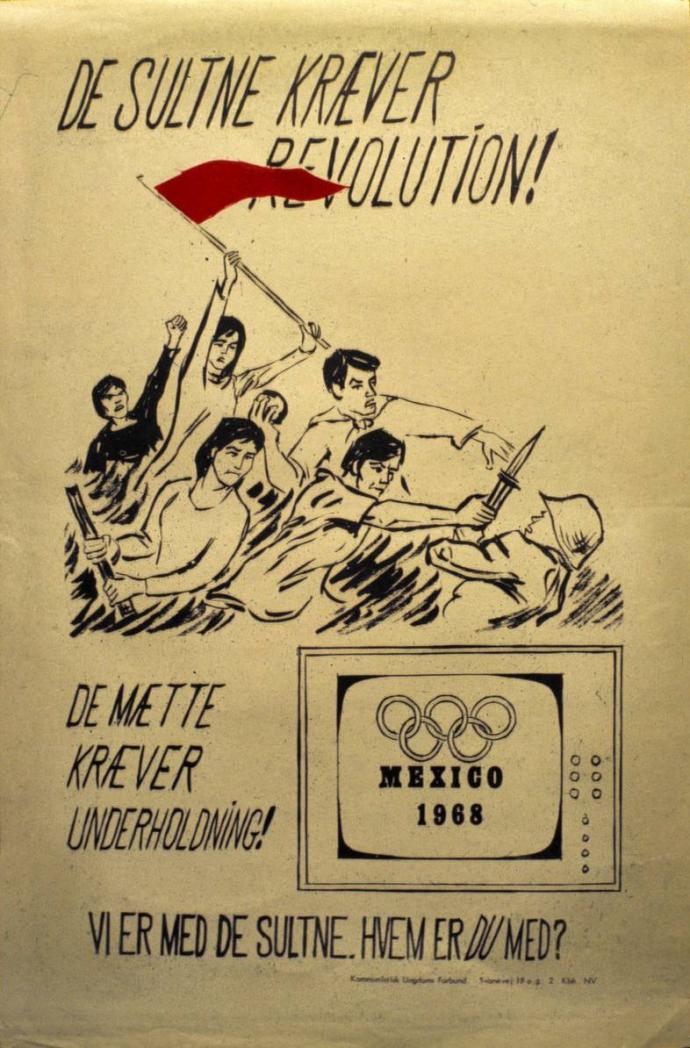Manifest – Communist Working Group of Denmark is working to obtain a socialist world, first and foremost by supporting liberation movements and other socialist forces in the Third World.
It may, on the face of it, appear strange that a political organization in Denmark focus on solidarity work towards the Third World. Why do we not concentrate our efforts on political work in our own part of the world? This choice of priorities is the outcome of certain fundamental political considerations.
The present world order
Let us take a brief look at what characterizes the present world order. The capitalist system still dominates the world economically, politically and militarily. Capitalist countries produce 2/3 of the world’s commodities and totally dominate the world market. They also have the strongest military apparatus at their disposal. The socialist countries are still the weakest party – although their military and economic strength is increasing. Indeed, the imperialist system is not so much threatened by the socialist/planned economy states as by conflicts within the capitalist system itself.
The capitalist world system is in point of fact characterized by a sharp division into wealthy developed countries (North America, Western Europe, Japan, Australia, New Zealand) and poor underdeveloped countries – the Third World. Centuries of plunder and exploitation of human and natural resources in Asia, Africa and Latin America have led to affluence and development in the imperialist countries, and corresponding misery and underdevelopment in the exploited countries. This division of the capitalist world into imperialist and exploited countries has been – and still is – a necessary precondition for the development of the system; but at the same time, this division also gives rise to social conflicts which threaten to disintegrate the system.
The Third World is the focal point.
A retrospective view of developments during the past 30-40 years will show that it is first and foremost areas in the Third World that have constituted the focal point in the struggle against imperialism for socialism.
The Communists’ victory in China, the struggle against Dutch colonialism in Asia, the Korean War, the Vietnam War and the other conflicts in South East Asia, the Algerian liberation struggle, the struggle against Portuguese colonialism in Angola, Mozambique and Guinea Bissau, the liberation of Zimbabwe from the settler regime, the liberation struggle in Namibia and South Africa, the numerous wars and conflicts around the settler state of Israel, the victorious struggle for Cuba and Nicaragua, the struggle in El Salvador, Guatemala and Chile – are mere examples from a long series of events which have brought the people’s struggle in the Third World into focus.
It is no accident that the Third World is the focal point for the struggle against imperialism. The exploitation of the Third World’s population and resources constitutes the very foundation of the existing capitalist world order. The dynamism of the imperialist system brings about a constant tapping of the life blood of the Third World. By virtue of unequal exchange, values to the tune of hundreds of billions of US$ are transferred annually. The result of this exploitation is a life in misery and poverty for the population of the Third World, the likes of which is unknown in the imperialist countries. These circumstances have led to a demand for change on the part of the exploited masses. A demand which the imperialist countries and their local allies seek to suppress with all the means in their power. This is the main cause of the constant unrest in the Third World.
On the other hand, the exploitation and underdevelopment of Asia, Africa and Latin America has been a precondition for the rapid development of capitalism in USA, Canada, Western Europe, Japan, Australia and New Zealand. It has likewise been an essential precondition for the economic progress and social security which by and large the whole working class in the imperialist countries has won for itself. It is this division of the capitalist system into poor and wealthy countries which is a prerequisite for the development of the system, which forms the background for the so-called North-South Conflict.
The anti-imperialist forces
The Communist Movement, more or less regardless of which part of the movement one cares to consider, has traditionally divided the anti-imperialist forces into three categories:
- The socialist countries,
- The working class and other progressive elements in the developed capitalist countries,
- National liberation movements and other socialist forces in the Third World.
Let us consider what role these various categories play in today’s anti-imperialist struggle.
The socialist countries
It is hardly accidental that the “socialist countries” are always mentioned first in publications issued in these countries. The fact of the matter is that these countries consider themselves to be the leading force in the anti-imperialist struggle. The correctness of this assertion is, however, very much open to question. As mentioned earlier, a concrete examination of the past 40 years’ anti-imperialist struggle will show that it has mainly been the liberation movements and the socialist forces of the Third World that have been the spearhead in the confrontation with imperialism. Nor is it such that these movements are a product of, or have been exported from the Soviet Union or the other socialist countries, as the USA is especially fond of claiming. There may well be grounds for arguing that, for example, the revolution in Nicaragua has sought inspiration and experience from Cuba or other socialist countries and movements, but the origin, development and success of the Sandinist revolution is first and foremost a result of circumstances in Nicaragua itself.
It is correct that the Soviet Union especially has often played an important role for the success of revolutionary movements. The military balance of power between East and West, which the Soviet Union has succeeded in achieving in the course of the 1970ies, has limited USA’s possibilities for unrestrained aggression in the Third World, and has increased the socialist countries’ ability to provide struggling movements and newly established progressive states with material and political support, thereby increasing their chances of victory and survival.
It is also true that the Soviet Union has increased its global influence through this involvement in the Third World, but the reason that the Soviet Union has been able to play this role lies beyond Soviet control, insofar as it lies in the econo- mic/political development in the Third World itself.
Because of the imperialist countries’ economic and military strength, the socialist countries have been in a permanently difficult position. Right from the establishment of the first socialist state in 1917, the developed capitalist countries have exerted enormous economic, military and political pressure on the planned economy states, partly in the hope that they might collapse, partly to prevent them from providing support to the anti-imperialist struggle in other parts of the world. In order to survive, the socialist countries have consequently been forced to give top priority to their own defense. The primary concern of the Soviet Union and the other socialist countries has always been the defense and development of “existing socialism”. They have supported the anti-imperialist struggle in the Third World to the extent that this did not conflict with their own short term security interests, which means first and foremost – as long as this did not have the effect of provoking the imperialist countries. The liberation movements and socialist forces in the Third World, on the other hand, give highest priority to direct confrontation with imperialism and its local flunkeys, which is only natural. They have nothing to lose.
The fact that the socialist countries and progressive movements in the Third World face a common enemy and have the same goals makes them potential allies. They both have the strategic goal of conquering imperialism and replacing capitalist exploitation with a socialist world order. For the Third World, this is a necessary prerequisite for a solution of the enormous social problems with which they are faced – and the socialist countries cannot feel secure, and their economic development will be hampered, as long as imperialism exists. But the developed socialist states and the movements of the Third World often adopt differing tactical positions in their confrontations with imperialism.
One might speak of a tactically offensive and a tactically defensive position. The liberation movements and the socialistically oriented movements in the Third World are in the front line, in a strategic and tactical offensive. They have everything to win and nothing to lose. The socialist countries, on the other hand, occupy a tactically defensive position. As long as the imperialist system retains its present strength, they must constantly defend their dearly won independence. There is thus nothing directly treacherous in this defensive policy, though on occasions it might appear somewhat opportunist.
MPLA, FRELIMO or Nicaragua’s Sandinists were offensive, uncompromising movements as long as they were fighting for state power. Today, having achieved state power, they have to use a considerable part of their resources to defend theselves against enemies within and from outside. Such as the relative distribution of power is in the world of today countries such as Nicaragua, Angola or Mocambique cannot support revoltionary movements in neighboring countries without encountering considerable problems. They have to carefully assess the relative distribution of power regionally and internationally, together with the nature and extent of their support in order not to jeopardize their own revolution. Revolutionaries must therefore rely first and foremost on their own strength.
The working class in the developed capitalist countries
In keeping with the traditional categorization, the second part of the anti-imperialist front is said to constitute the working class in the imperialist countries. Let us take a closer look at the role that this class has actually played in the anti-colonial and anti-imperialist struggle.
The spreading of capitalism over the whole world at the end of the last century led partly to the creation of one integral economic system – one world market, but partly also to a division of the capitalist system into an exploited and an exploiting part. In the previous century, the living conditions of the proletariat in Europe and in the colonies were by and large equally miserable. From around the turn of the century, however, this state of things began to change. The working class in the imperialist countries succeeded, slowly but surely, in securing increased wages and an extension of their political rights. During the first half of the 19th century, the capitalist system had been unable to meet, let alone fulfill the prole
tariat’s demands for better living conditions. This was beyond what the capitalist system could provide at this point in history. But this state of affairs changed decisively with the onset of imperialism. Colonial profits made it possible for the ruling class to meet the demands of the working class without jeopardizing the existence of the system itself. Rising wages, improved working conditions and the extension of political rights served also to strengthen working-class belief in the possibilities of reformism, which in turn made it possible for the bourgeoisie to extend political rights and so forth. The rising wage level – financed through imperialism’s exploitation of Asia, Africa and Latin America – led moreover to a steadily growing domestic market in the imperialist countries and thus to a dynamic development, which in turn resulted in stable social and political conditions.
The development of the welfare states in the imperialist countries resulted in a change in the nature of the contradiction between the working class and the bourgeoisie. A class struggle does, of course, still exist. Regardless of whether wages are high or low, the social product under capitalism consists of two inversely proportional parts, namely the wages of the working class and the profit of the capitalists. An increase in one of these elements results in a corresponding decrease in the other. Therefore the contradiction still exists. But when the national exploitation to which the working class is subjected constantly diminishes when compared with the advantages the class enjoys by belonging to a rich privileged nation, then there comes a point when the increase in the national affluence becomes more important than the struggle against capital. It is not only the bourgeoisie, but also the working class in the imperialist countries that benefits from the low wages in the Third World and the resultant low prices of the products from these countries. Cheap raw materials from the Third World for industry and agriculture in the imperialist countries leads to cheap finished products when measured in relation to the relatively high wages in the wealthy countries. If wages in the Third World were raised to a Western European level, then products such as copper, tin, chromium, zinc, coffee, tea, cocoa etc. would become several hundred percent more expensive. Also cheap finished products such as textiles and electronics are produced in the Third World. At the same time, the high wage level in the imperialist countries means that commodities from these countries are beyond the means of workers from the Third World with their poor wages.
Thus, imperialism has meant that the working class in the imperialist countries and the proletariat in the exploited countries do not at the present time share the same interests. In practice this has also proved to be the case. One would have great difficulty finding an example of the English working class having supported the anti-colonial struggle that took place within the Empire. By and large, it has supported the changing governments’ colonial policies throughout the past 100 years, from Ireland to Southern Africa, from India to the Falkland Islands. Nor indeed can the French working class boast of having supported Vietnam’s, Algeria’s or Syria’s struggle for independence – far from it. Generally speaking, the working class of USA has also rallied around the imperialist and anti-socialist policy of this country throughout the world. When the people of USA nevertheless did eventually turn against the Vietnam War, they did so not in solidarity with the Vietnamese people, but because the war was begining to cost too many US-american lives. Generally speaking, the workers of the Western World are pro-Israeli and consider the Palestinians to be terrorists. The working class of the imperialist world does not favor Apartheid, yet they certainly do not wish to have a socialist South Africa either. Anti-communism has increased in the Western World in recent years. The microscopic Left, which does after all exist in the imperialist countries, has never wished to face these facts, but has instead always excused the working class. “The workers have been indoctrinated by schools, TV, radio and the bourgeois press – they do not know any better.” But to explain decades of consistent opportunism as the result of Social Democratic betrayal is to bid farewell to historical materialism. The working class has not been misled, but pursues policies which are consistent with the interests and goals of the working class. To claim that the bourgeoisification of the working class is the result of indoctrination and the propaganda of the mass media is an equally shoddy excuse. Why, one might well ask, is the proletariat of the Third World, which is exposed to reactionary propaganda in at least equal measure, not equally bourgeoisified – and why is the imperialist working class so receptive to bourgeois and anti-socialist propaganda? No – the attitude of the working class in the Western World towards the anti-imperialist struggle is rooted first and foremost in economic facts. The working class do not want a new world order which will involve it having to forfeit privileges. It will be naive of the liberation movements and socialists of the Third World to count on the active support of the working class in the Western World for a radical transformation of the present world order.
The liberation movements and the socialist forces of the Third World
It is thus our conviction that the Third World constitutes the most important front in the anti-imperialist struggle. Antiimperialism is, however, a broad concept. It may cover nationally minded capitalists who wish to protect their own industry and domestic market against foreign competition, or religious fundamentalists who wish to fight “foreign” cultural and religious influence, or yet again petit bourgeois strata in the armed forces and administration who wish to pursue particular national goals. Finally, there are the liberation movements and socialists who, in addition to national and cultural liberation, also fight for economic liberation.
Since World War 2 the countries in the Third World, with a few exceptions, have achieved formal national independence. This process has not, however, injured imperialism in any decisive way or led to any general solution of the economic and social problems facing the Third World. We are of the opinion that only the socialist forces of the Third World will be in a position to undertake an effective continuation of the anti-imperialist struggle.
This struggle must be carried out on two planes: the national and the international. On the national plane, this means a struggle against capitalist exploitation and the constructing of a socialist national order, which by means of a planned economy can ensure an optimal use of human and material resources for an economic and politically democratic development of the country. On the international plane – a struggle for a new economic world order, which can put an end to international exploitation. Poverty in the Third World is closely bound up with these countries’ connection with the capitalist world market. Even if e.g. Zaire carried out a socialist revolution tomorrow, the price of their most important source of income, copper, would not rise. Neither does Nicaragua get more for its coffee or bananas because it has had a socialist upheaval. Regardless of the economic policy which has been in force in the now independent countries, they have had to learn through experience of how their individual efforts to develop their economies have been hampered by the conditions that prevail on the world market. The struggle against the present economic world order is therefore a very important element in the liberation of the Third World. Only through a national revolution combined with international solidarity between the countries of the Third World will it be possible to back up the demand for a new economic world order with sufficient force. It is first and foremost the socialists in the Third World who are the guarantors for this political strategy
We believe that a progressive development in the Third World have to be a socialist development. We support the forces, who after gaining national liberation want to continue the revolution towards economic and social liberation. We find material support work most important, – sympathy and moral support is not sufficient.
In short, this is our political line.
Manifest – Communist Working Group
October 1986

